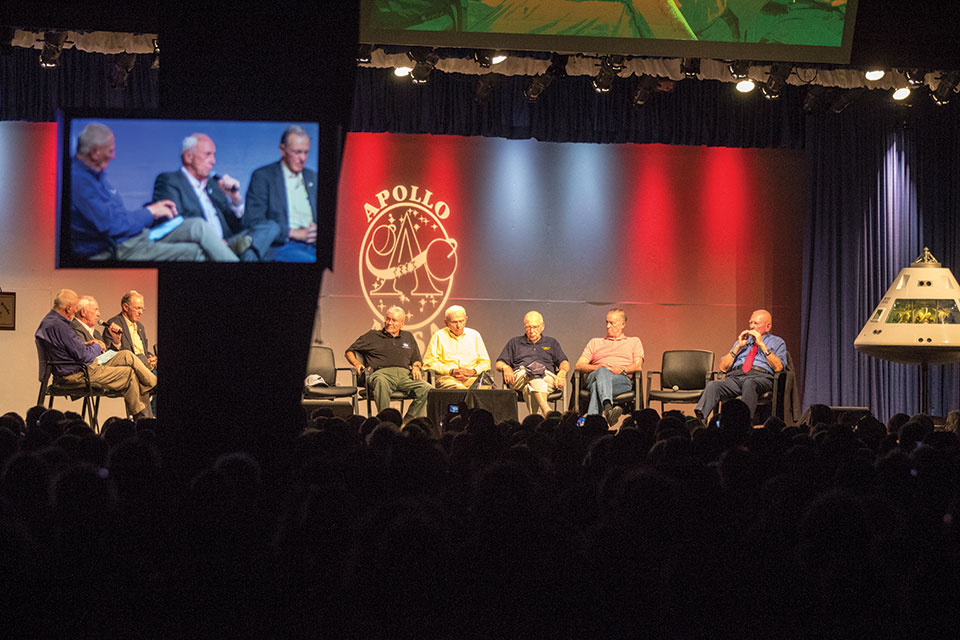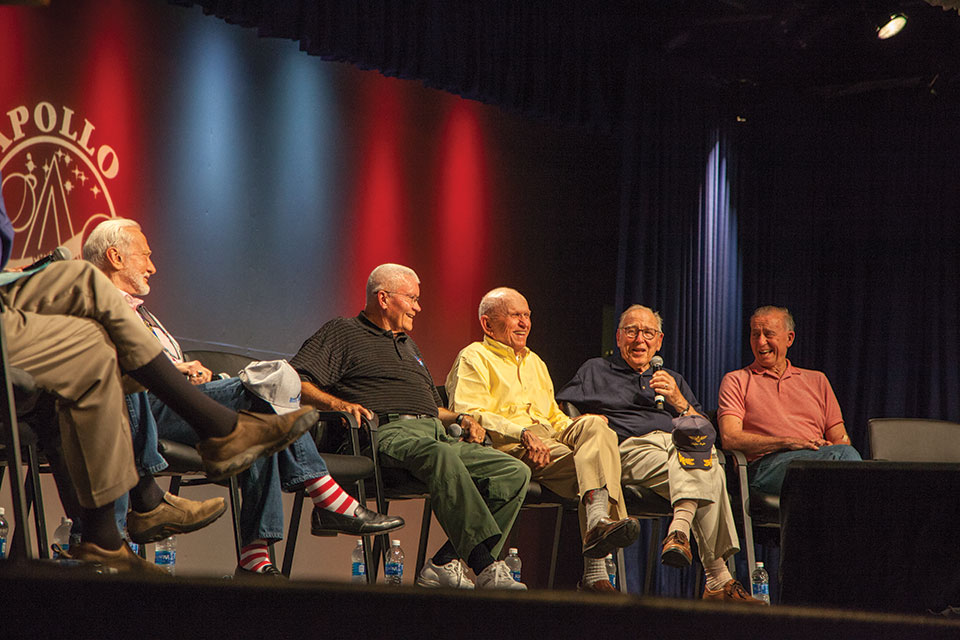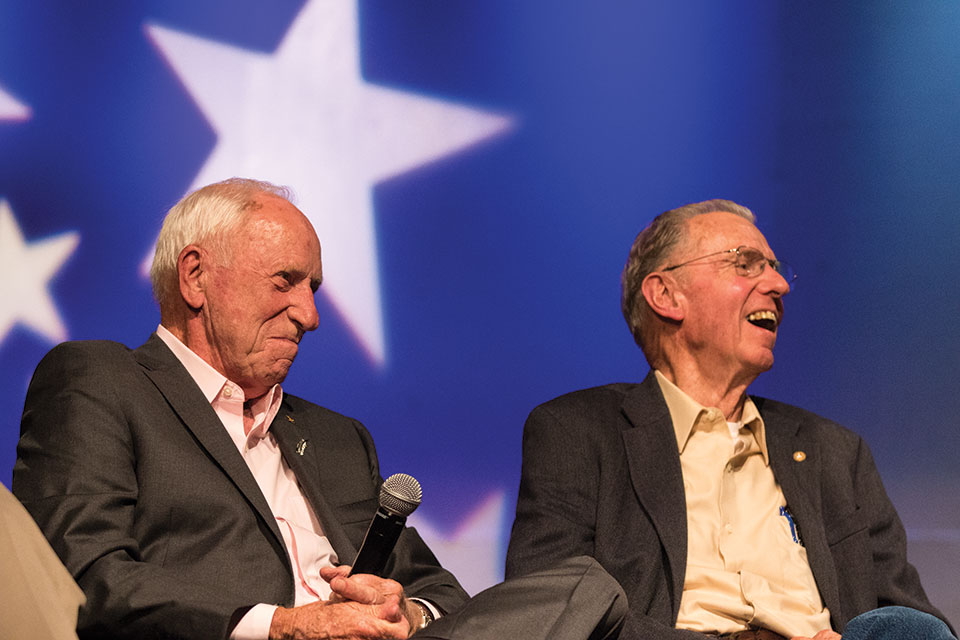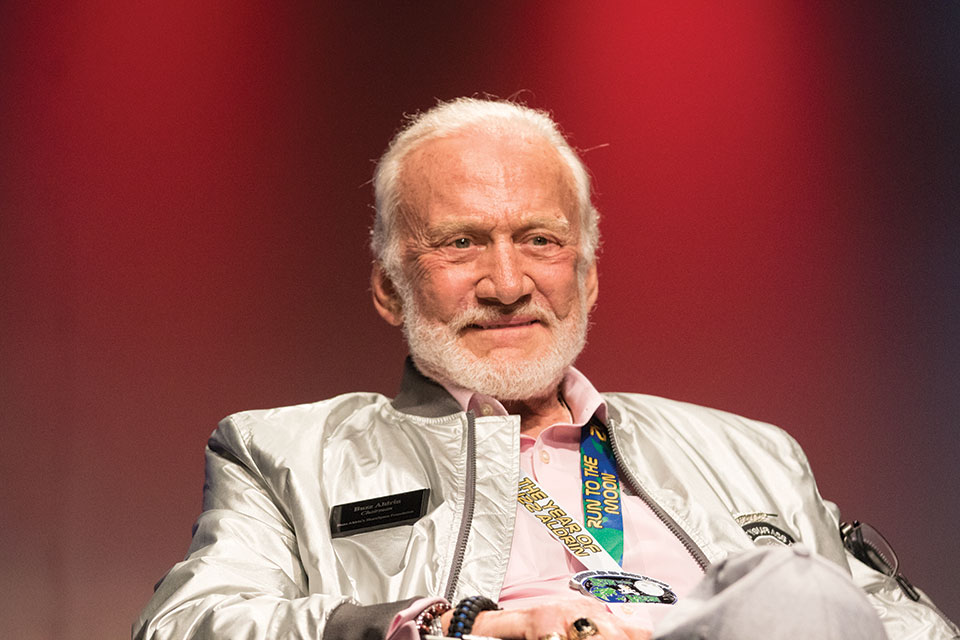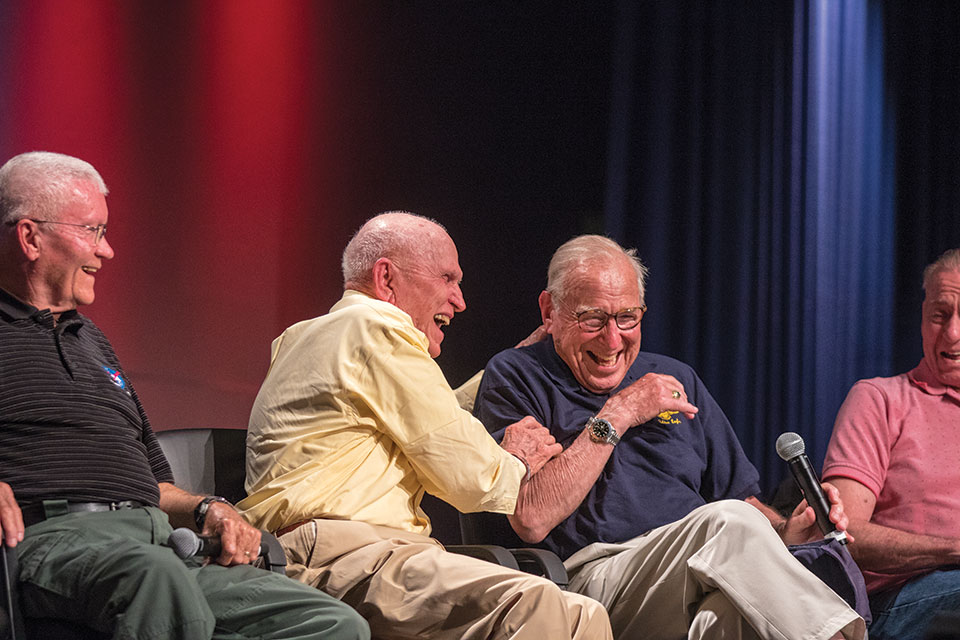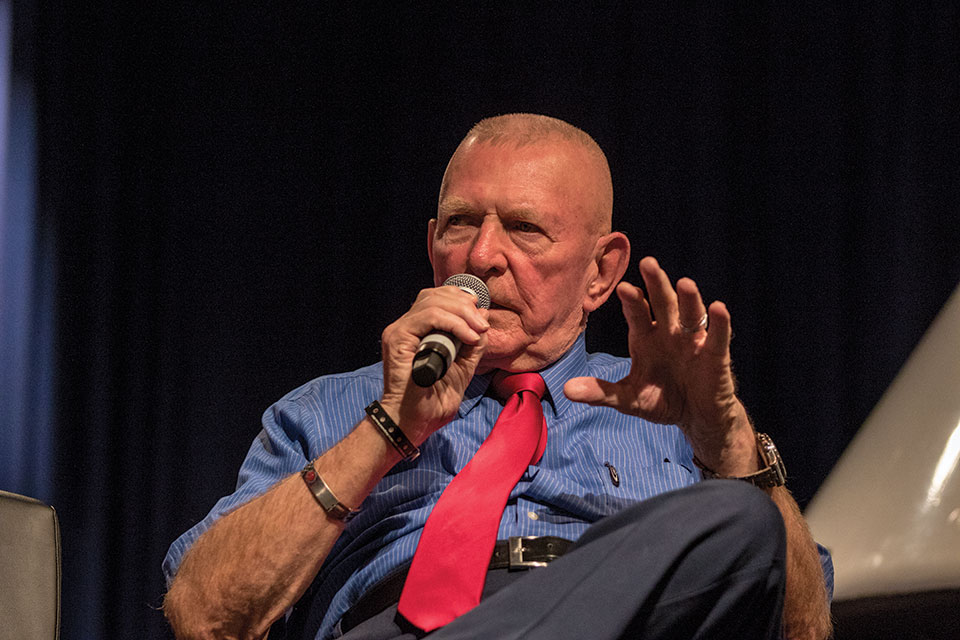Apollo Astronauts Talk Shop in Historic Meeting
By James Wynbrandt
July 29, 2017 - A historic meeting of seven Apollo astronauts and their flight director at Friday night’s “Salute to Apollo” at Theater in the Woods shed light on the inner workings of the most successful scientific endeavor in history. It also revealed the human side of the incredible aviators.
Recounting his experiences in the program, space shuttle astronaut Joe Engle, who had to give up his seat on the last Apollo mission in favor of geologist Harrison Schmitt, said, “I don’t want to get all gooey, but I got to know this incredible bunch of true American heroes you’ve got on stage tonight.”
Moderator David Hartman deftly maneuvered the panelists — astronauts Buzz Aldrin, Frank Borman, Walt Cunningham, Joe Engle, Fred Haise, Jim Lovell, Al Worden, and flight director Gene Kranz — through the succession of Gemini and Apollo missions. Throughout the discussion there were good-natured references to the interservice rivalries between Air Force- and Navy-trained astronauts — and among all the astronauts — for mission assignments.
Lovell and Borman, who spent 14 days in space together aboard Gemini 7 (and sat next to each other on the dais), recalled the unusual connection that can develop in such close quarters. Borman asked, “How many people in the audience would want to spend 14 days in a vehicle as small as the front seat of a Volkswagen Beetle with a sailor?” to which Lovell responded, “I know plenty.”
EVAs (extravehicular activity), or space walks, were critical to preparing astronauts for the moon landing. However, deficiencies in the spacesuit, external capsule design, and the difficulties of replicating a weightless environment hampered advances until a NASA engineer suggested immersing a capsule in a swimming pool for training. “A few of our test pilots said, ‘How in the world can you simulate being in a vacuum by being underwater and moving around?’” Aldrin recalled. “Well, I had been scuba diving for eight or nine years at the time and thought this was really going to work.”
How confident was the crew of Apollo 11, the first slated to land on the moon, that they would accomplish their mission and safely return to earth? Given the many factors that could cause an abort to the lunar touchdown, “The three of us felt maybe [there was a] 60 percent chance that we would be able to land successfully,” Aldrin said, but “a 95 percent chance of coming home safely.”
When Apollo 13 experienced the near-catastrophic explosion that transformed the mission from a flight to the moon to a fight for survival, what did Lovell really say?
“That famous line [from the movie Apollo 13], here’s the actual situation: The first time, Jack [Swigert, command module pilot] said, ‘Houston, we’ve had a problem here.’ But the transmission wasn’t copied, and when Mission Control asked Swigert to repeat, “I said, ‘Houston, we have a problem. We have a main B bus electrical problem,’” he said.
Looking ahead to the future of mankind in space, Aldrin said, “I believe humanity will move and settle on Mars, and people will go there and will spend the rest of their lives there. … I think that is our destiny.”
When summing up what space travel taught him, Lovell said, “We all think about, ‘I hope to go to heaven when I die.’ Ladies and gentlemen, you go to heaven when you’re born. You arrive on a planet with the positive mass that provides the gravity that contains the water and an atmosphere and the essentials of life. … God has given mankind a stage that we saw out there for us to perform on. How that play turns out is up to us.”
